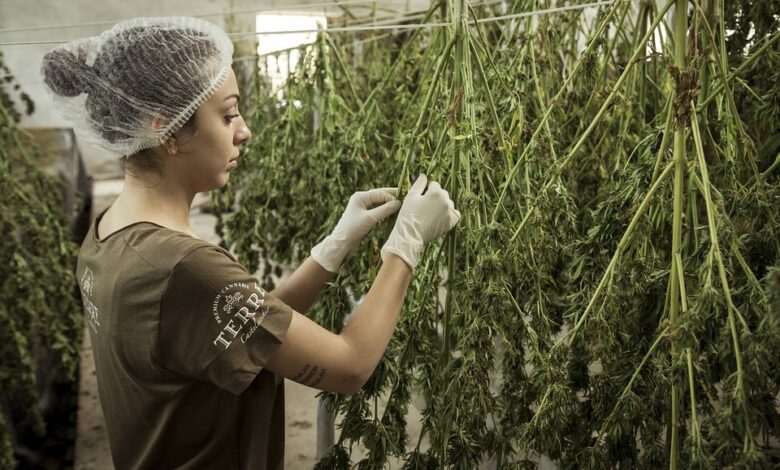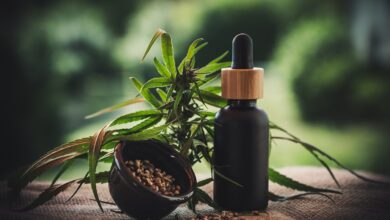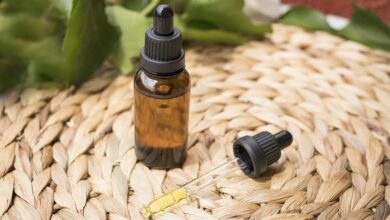Understanding the Differences Between Delta 9 THC and CBD

With the increasing popularity of cannabis products, there has been a growing interest in understanding the differences between Delta 9 THC and CBD. As the two most well-known cannabinoids found in the cannabis plant, Delta 9 THC and CBD have unique properties and effects that make them distinct from each other. In this article, we will explore the key differences between Delta 9 THC and CBD and their respective uses, benefits, and potential side effects.
Delta 9 THC vs CBD: What’s the Difference?
1. Chemical Structure
Delta 9 THC (tetrahydrocannabinol) and CBD (cannabidiol) are both cannabinoids found in the cannabis plant. However, they have different chemical structures. Delta 9 THC is a psychoactive compound that is responsible for the “high” associated with cannabis use. On the other hand, CBD is non-psychoactive and does not produce a high.
2. Effects on the Body
Delta 9 THC and CBD interact with the body’s endocannabinoid system, which regulates various physiological processes such as pain, mood, sleep, and appetite. However, they have different effects on the body. Delta 9 THC binds to the CB1 receptors in the brain and nervous system, leading to the intoxicating effects associated with cannabis use. In contrast, CBD interacts with the CB2 receptors and has a more subtle influence on the body’s endocannabinoid system, promoting wellness and balance without producing a high.
3. Medical Benefits
Both Delta 9 THC and CBD have been studied for their potential medical benefits. Delta 9 THC is known for its analgesic (pain-relieving), anti-inflammatory, anti-nausea, and appetite-stimulating effects. It is commonly used to treat conditions such as chronic pain, chemotherapy-induced nausea, and loss of appetite in HIV/AIDS patients. CBD, on the other hand, has been researched for its potential therapeutic properties in managing anxiety, depression, seizures, and inflammatory conditions such as arthritis and multiple sclerosis.
4. Legal Status
Another important difference between Delta 9 THC and CBD is their legal status. Delta 9 THC is classified as a controlled substance in many countries due to its psychoactive effects and potential for abuse. In contrast, CBD derived from hemp (a variety of cannabis with low levels of THC) is legal in many places, as long as it contains less than 0.3% THC. However, the legal status of CBD products can vary from one jurisdiction to another, so it is important to be aware of the laws in your area.
5. Side Effects
Delta 9 THC and CBD may also have different side effects. Delta 9 THC can cause short-term cognitive impairment, increased heart rate, dry mouth, red eyes, and in some cases, anxiety or paranoia. Long-term heavy use of Delta 9 THC may also lead to addiction and negative effects on mental health. CBD, on the other hand, is generally well-tolerated and has a low potential for abuse or dependence. The most common side effects of CBD are mild and may include drowsiness, dry mouth, and changes in appetite.
Frequently Asked Questions (FAQs)
Q: Is it possible to feel high from CBD?
A: No, CBD is non-psychoactive and does not produce a high. It may have calming and relaxing effects, but it does not impair cognitive function or cause euphoria.
Q: Can CBD counteract the psychoactive effects of Delta 9 THC?
A: Some research suggests that CBD may mitigate the intoxicating effects of Delta 9 THC by modulating its interaction with the CB1 receptors. However, more studies are needed to fully understand the potential interactions between CBD and Delta 9 THC.
Q: What is the entourage effect?
A: The entourage effect is a theory that suggests that the combination of various cannabinoids and other compounds found in the cannabis plant may have synergistic effects, enhancing the therapeutic properties of cannabis products. This concept has implications for the use of full-spectrum or broad-spectrum CBD products.
Q: Can Delta 9 THC and CBD be used together?
A: The use of Delta 9 THC and CBD together is known as the “cannabis entourage effect” and may offer unique benefits. However, it is important to be aware of the legal implications and potential interactions between the two compounds, especially in terms of their effects on cognitive function and risk of adverse reactions.
Q: Are there any drug interactions with Delta 9 THC or CBD?
A: Both Delta 9 THC and CBD can interact with certain medications, particularly those metabolized by the liver. It is important to consult with a healthcare professional before using cannabis products if you are taking any prescription medications.
In summary, understanding the differences between Delta 9 THC and CBD is important for making informed choices about cannabis products. While Delta 9 THC is known for its psychoactive effects and medical benefits, CBD offers non-psychoactive wellness benefits with minimal side effects. By understanding the unique properties and effects of these cannabinoids, individuals can make informed decisions about their use for health and wellness purposes.
Overall, as the cannabis industry continues to grow and evolve, it is essential for consumers to educate themselves about the differences between Delta 9 THC and CBD to make informed choices about their health and wellness. With ongoing research and advancements in cannabis science, we can expect to gain a deeper understanding of these compounds and their potential therapeutic applications in the future.
[ad_2]




